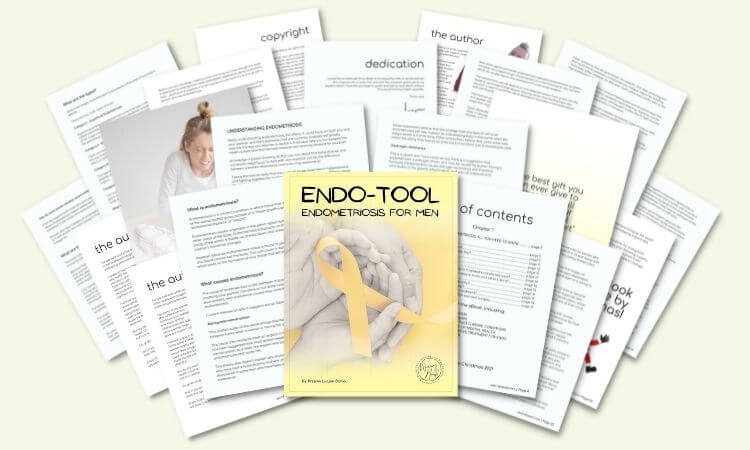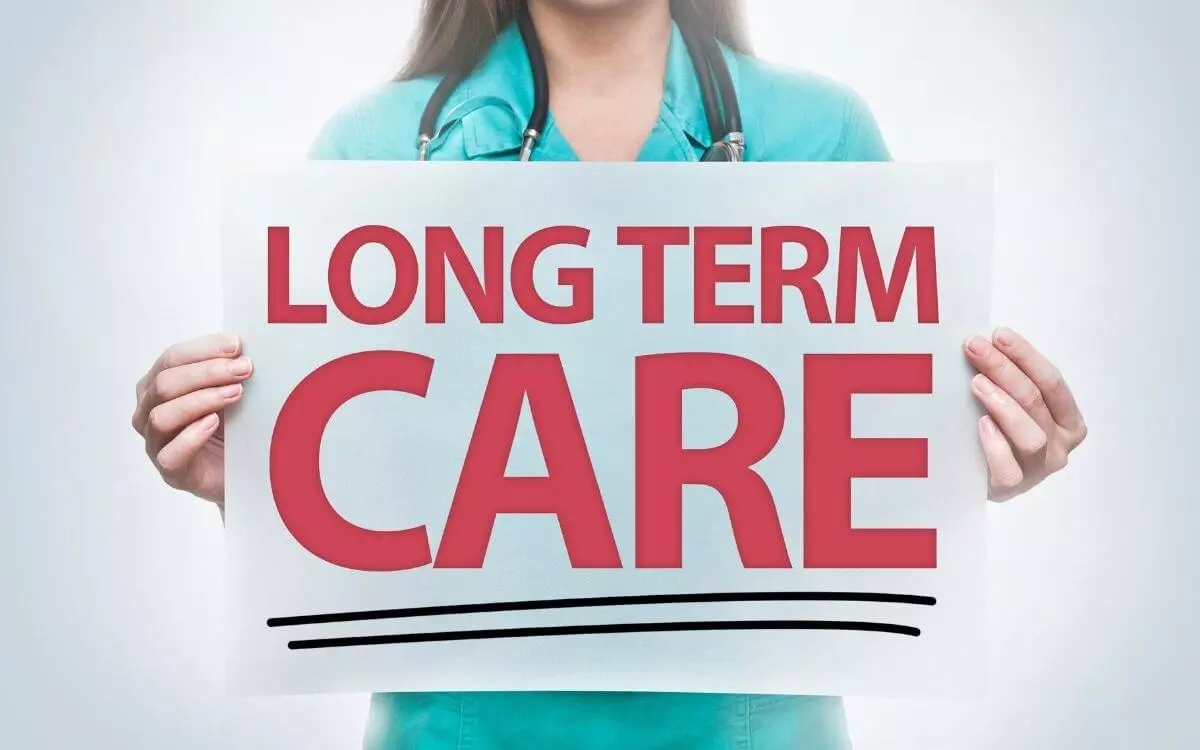What to do when endometriosis interferes with work? Endometriosis discrimination in the workplace!
What to do when endometriosis interferes with work?
My wife lives with endometriosis, and yet, her illness isn’t recognized as a disability in the UK because, unlike other chronic conditions, it should be assessed on a case-by-case basis. When endometriosis interferes with work, you find yourself trapped not knowing what to do.
The lack of knowledge of what to do and fear of being sacked from the job, makes many women feel extremely anxious and depressed due to an uncertain future.
The same applies to employers and their lack of awareness of what to do when their employee is chronically ill.
Having to talk about endometriosis with a male employer makes women feel uncomfortable. Their boss on the other hand doesn’t know what the woman is going through. It creates a vicious cycle…
So, here’s a quick answer to what should you do when endometriosis interferes with work:
- Be prepared to openly discuss endometriosis with your employer.
- Help your employer fill the gaps in existing knowledge about your condition.
- Be aware of your rights and workplace law.
- Address any discrimination against you if you feel it occurs.
- Be prepared to manage endometriosis pain and other symptoms at work.
- Know the flexible policies that allow you to work from home.
If you struggle with endometriosis discrimination in the workplace, it is because work colleagues don’t understand your illness. This is why I wrote “Endo-Tool, Endometriosis for Men”, which shows what you’re going through. I give you a FREE 1st chapter that contains 20 pages filled with lots of value, including:
- What is endometriosis?
- What are the symptoms?
- What causes endometriosis?
- What does endometriosis look like?
- What are the stages?
- What are the types?
- What is adenomyosis and how is it related to endometriosis?
- Why do some women develop severe endo and others don’t?
- Does endometriosis cause infertility?
- How is endometriosis diagnosed?
- Do types and stages affect the treatment?
- Recurrence of endometriosis after excision surgery.
Get FREE “Endo-Tool”
Endometriosis for Men e-Book

The ticking time-bomb of chronic illness…
Employers aren’t aware of how to accommodate employees who have chronic illnesses. Their incurable and fluctuating health conditions often impact their productivity.
Most disabilities and long-term conditions occur in the middle and later stages of life, but when it comes to endometriosis, women may even get it as soon as they hit puberty. Looking young and fit makes them feel disbelieved by those who don’t understand this condition.
There is a huge challenge for organizations and occupational health departments working within them because managing illnesses are expensive. But looking from the perspective of those who suffer, their health is absolutely priceless.
Work and endometriosis is sensitive subject, this is why I decided to explore endometriosis discrimination in the workplace, not only to help my wife but to support other people in similar situations to hers…
In this article I give you answers to the following questions:
- Why do work and endometriosis collide?
- How to explain endometriosis to your boss?
- What is the employer’s perspective on work and endometriosis?
- What is an employee’s perspective on work and endometriosis?
- Endometriosis discrimination in the workplace!
- Endometriosis and the law.
- How to make endometriosis and workplace adjustments?
- Endometriosis work from home…
- Best work for endometriosis!
- Why you should start blogging about endometriosis?
Why do work and endometriosis collide?
The simple answer to why do work and endometriosis collide is that endometriosis is that it’s still poorly understood, especially by employers. The diagnosis takes on average 7 to 8 years, general practitioners have poor medical expertise in dealing with this condition.
Work and endometriosis collide because this illness impacts women’s lives, it has an impact on their work and finances. The fact that female problems aren’t honored enough, despite strong workplace health assessment laws, is a big problem.
My wife went through impossible challenges at work because her manager did not understand her struggles. It led her to suicidal thoughts and attempts.
As a husband, I needed to protect her, I decided to research the topic of endometriosis discrimination in the workplace because when endometriosis interferes with work, it also interferes with the woman’s and her partner’s finances.
When endometriosis interferes with work, financial problems often appear and have implications for relationships. The endometriosis divorce rate is as high as 70%. It also applies to the fibromyalgia divorce rate.
Knowing that women suffering from endometriosis have a 40% chance of developing fibromyalgia makes it even bigger impact on the workplace and their relationship.
Aside from fibromyalgia, women who suffer from endometriosis are more at risk of several other diseases than women from the general public.
Below, I provide you with the statistics:
- The risk of ovarian cancer is 37% higher.
- The risk of endocrine tumors is 38% higher.
- The risk of kidney cancer is 26% higher.
- The risk of thyroid cancer is 33% higher.
- The risk of brain tumors is 27% higher.
- The risk of malignant melanoma is 23% higher.
- The risk of a heart attack is 62% higher.
- The risk of infertility is also 30% to 50% higher.
All the above statistics play on women’s minds. Anxiety and depression are consequences of endometriosis, they are the symptoms, but they aren’t often understood by employers, furthermore, women are accused of having mental illness instead of endometriosis.
Even recently, after working as a secretary in a health care organization, one of my wife’s new managers suggested antidepressants, which made her feel disbelieved, even after 10 years of working for the company.
It was an insult to my wife, I told M, that I will do anything in my power to shower her manager with the education of endometriosis, and with the law policies and procedures.
As her husband, I cannot sit still and watch my wife being discriminated against like this. M is afraid of losing her job, but I constantly reassure her, that the law is on her side, and she has nothing to fear.
There shouldn’t be endometriosis discrimination in the workplace at all!
What my wife experienced is a result of a total lack of communication within the management. This is why work and endometriosis collide.

How to explain endometriosis to your boss?
I wrote already an article on how to explain endometriosis pain to a guy, but how to explain endometriosis to your boss is another matter.
Because this conversation should be formal yet easy to explain. Women who suffer might be in pain, feel tired, or bleed at the time.
The last thing they want is to have a long conversation with their boss.
To quickly answer the question of how to explain endometriosis to your boss, here are 13 quick steps you need to know:
- Educate yourself.
- Prepare what you want to say.
- Don’t be ashamed.
- Be honest.
- Provide research-based evidence.
- Ask a man to join you.
- Let your man speak.
- Ask for occupational health.
- Equality Act 2010 as a disability.
- Discuss menstrual leave paid policy.
- Educate HR on the condition.
- Post-surgery leave.
- Know your rights, legal approach.
I explained the above points one by one in detail, so if you are interested, read the full article on how to explain endometriosis to your boss.
What is the employer’s perspective on work and endometriosis?
Because you ate not in your boss’s shoes you wouldn’t know what is employer’s perspective on work and endometriosis is. Here’s what you need to know…
Endometriosis isn’t commonly discussed in the workplace but this condition can cause a lot of pain and discomfort.
While living with endometriosis is extremely difficult it is not recognized as a disability in the UK. This is because endometriosis varies in degree and impact on different women, who should be assessed on a case-by-case basis.
Charities and support groups such as those don’t want endometriosis to be recognized as a disability, arguing that women may be disadvantaged at the workplace by such recognition.
Employers could discriminate against women saying that they are unable to carry out certain roles and duties. When endometriosis interferes with work it can be extremely challenging for women.
While some women are able to function well at work and home, the ones who struggle with it should be supported by HR and management.
The employer may offer the necessary time off work, follow flexible working options, so the woman can undergo the necessary tests and treatment.
Additionally, emotional support from another female employee in management or HR should be provided so the woman suffering from endometriosis can feel valued and secured.
Employers should recognize endometriosis as a chronic and very difficult condition to manage. It should be recognized for what it is.
Endometriosis should never be seen as many uninformed employers think, as a hormonally-difficult time. It must be treated with sympathy, however, it is often difficult in a male-dominated environment.
The employer should know that it is unethical to disclose an employee’s medical records or conditions, including endometriosis. Disclosing such confidential information without women’s consent is considered unlawful and should be challenged in court.
Chronic conditions may impact productivity at work, so asking what is employer’s perspective on work and endometriosis is, I can guarantee you that it is not easy for them.
It may be not easy for the employer but what about the one who suffers? What is an employee’s perspective on work and endometriosis?
What is an employee’s perspective on work and endometriosis?
To answer what to do when endometriosis interferes with work we need to take both perspectives into the account. So, apart from the employer’s point of view, what is the employee’s perspective on work and endometriosis?
My wife works from home, she struggled so much by being physically in the workplace, she couldn’t stand the symptoms build up. Only when she began working from home, her illness calmed down.
Talking about an employee’s perspective on work and endometriosis can be extremely difficult to explain because of the fact that every woman is unique and has a different level of the disease.
For my wife it isn’t only endometriosis, she also suffers from fibromyalgia. Both conditions give her a multitude of symptoms that vary from day today.
To explain endometriosis to her boss was hard, but when I stepped in by organizing a meeting with her employer and confirmed that what she was going through was true, things began to improve with work and endometriosis at the same time because both impact one another.
What I can tell you is that endometriosis is a stigmatized condition. Many employers won’t believe that it’s real.
Endometriosis impacts not only physical and psychological health, but also mental health, social and personal relationships, education, finances, and overall quality of life.
What is the employee’s perspective on work and endometriosis then? Only the woman who suffers from endometriosis can explain it.
Endometriosis discrimination in the workplace!
Let’s discuss endometriosis discrimination in the workplace in detail. When endometriosis interferes with work, it often happens that fellow work colleagues feel like women suffering from endometriosis put on an act, are lazy, take too much time off…
My wife works from home at the moment but has to communicate with another secretary and reception. The latter is can be sarcastic to her which makes the job unpleasant.
A chronic illness like endometriosis isn’t an easy fight, on top of the stressors and responsibilities of work chronically ill people feel judged and made feel guilty. While suffering from a chronic illness makes it difficult to maintain a normal job, employees should not face discrimination.
74% of people who suffer from a disability do not use a cane, wheelchair, or any other visible aid. Chronic conditions such as endometriosis or fibromyalgia are not visible, although with endometriosis I would argue because by performing laparoscopy you get the physical evidence of the disease.
Despite that evidence, naturally, women don’t show it to their work colleagues as it would be considered unethical. The lack of proof makes them feel invisible, disbelieved, and judged.
Endometriosis discrimination in the workplace is something that should be taken seriously. As the understanding of mental health problems becomes more apparent, endometriosis isn’t treated in the same way.
Many people battle serious illnesses on a daily basis without anyone even knowing. My wife hid it from her work colleagues for years fearing being misunderstood. And she was right. They judge her because they don’t suffer from this insidious condition as my M does.
The Equality Act prohibits three types of discrimination on the basis of disability:
- Direct discrimination
- Discrimination arising from a disability.
- Indirect discrimination.
Even though charities don’t want endometriosis to be recognized as a disability, under the 2010 Equality Act (section 6), the Equality Act defines a disability as a physical or mental impairment, and since endometriosis has a substantial and long-term impact on an ability to carry out normal day-to-day activities, it is considered a disability.

Endometriosis and the law.
Luckily for my wife, and many women suffering from endometriosis, the law protects them, but not many people are aware of that.
They put up with endometriosis discrimination in the workplace for the sake of keeping the job, as the thought of not earning money makes them fearful of the uncertain future even more.
The battle women take starts with telling the employer about endometriosis. There’s a stigma and fear associated with sharing such personal information because as I said, endometriosis is not considered a disability by many employers.
But despite a lack of awareness, understanding, and support, endometriosis and the law become more recognized.
In the UK there is an option to sign up for the Endometriosis Friendly Employer Scheme. This gives employers the flexibility to develop better support for employees with endometriosis, tackle stigma, and change communication in the workplace.
When it comes to endometriosis and the law, there are different employment rights that may be important for women to know.
In the UK, Endometriosis UK is a leading charity. They produced a helpful guide for employers which provides an overview of the employment laws and the issues that can arise in the context of endometriosis. They include:
- The duty to make reasonable adjustments.
- Statutory sick pay (available in the UK).
- Flexible working hours or work from home.
When it comes to Statutory Sick Pay (SSP), it is payable at a statutory rate of £94.25 per week and is payable for a maximum of 28 weeks in any three-year period.
For more details, you can look into The Social Security Contributions and Benefits Act 1992.
Apart from the Equality Act stating that bosses should make reasonable adjustments for their workers who have a disability, you can look into more sources in relation to endometriosis and the law, including this source and this one.
Talking about flexible working options, The Employment Rights Act 1996 sets out the rules.
So, that’s in a nutshell endometriosis and the law.
How to make endometriosis and workplace adjustments?
I personally learned that the best way to make endometriosis and workplace adjustments is by having a man by the woman’s side.
I organized a meeting with my wife’s manager by calling him over the phone. My wife didn’t know that at the time, and I didn’t tell her until I sorted it out because she would find the idea very anxious.
But she was very grateful I did it because she wouldn’t do it herself. She would continue to suffer in silence instead of speaking up about how she really felt.
By having a man be the woman’s side you show that what she’s going through is actually real, furthermore, if as the partner her endometriosis also affects you, which it does, you feel obliged to fight for her job.
If you didn’t, she would suffer in silence being disbelieved, even discriminated against. Aside from that she would lose days of work, and what follows – money.
Her financial impact affects you both as a couple because you are in this together.
Being by her side, not only do you show her support, but you also gain her trust and feel less useless. As a man, I used to feel useless not being able to fix my wife’s health.
By stepping in, not only with her job but also with her doctor’s and hospital appointments, you feel a sense of achievement, you feel like you actually help because you make a difference in her life.
So, if you ask how to make endometriosis and workplace adjustments, I say, be there for her – organize a meeting with her employer and gather together to talk things through.
In my wife’s case, we talked about working from home for her. Endometriosis work from home depends on the woman, some can cope as their job isn’t demanding, some can’t. But when endometriosis interferes with work it often becomes more demanding.
Endometriosis work from home…
Let’s discuss endometriosis work from home. For my wife 1,5-hour travel to work costs her a lot of pain and fatigue. These are only two symptoms among many others. It’s a struggle.
Long story short, my M reached the point where she could no longer travel without falling ill. Work from home with endometriosis was the only option left. But it helped, it helped a lot!
My wife’s endometriosis dictates her career choices. But I have to add, that it did not dictate my own career. I chose to blog. Worry Head was born when my wife’s endometriosis and soon after fibromyalgia diagnosis gave me more questions than answers.
My wife did not have a choice. I did, and I chose to dedicate my life to research, write, and help M and other women who suffer from these brutal conditions.
I went even further because my blog focuses on the male partners of chronically ill women, as I am a man in such a position. I’ve learned what works and what doesn’t, and how to help others in a similar situation to main.
Although not full-time yet, I chose to work from home. As for September 2021, it will become my career, and I am going to make a living doing something I love doing – helping other people.
For my wife, endometriosis work from home is a good choice. Her symptoms are less severe, and the reason for it is a massive decline of stress because when endometriosis interferes with work, the stress amplifies.
But what is the best work for endometriosis?
Best work for endometriosis!
My wife works as a medical secretary, therefore she has an option to work from home. For other women, it may not be possible. So, what could be the best work for endometriosis in such a situation?
In my opinion, the only option and the very best work for endometriosis is blogging! I am going to explain in a moment why you should start blogging about endometriosis.
All you need to know now is that it’s possible for anyone who is willing to put a bit of work on the side.
Blogging is the best work for endometriosis, it is a job that is extremely satisfying. Sure, you need to put a bit of effort in the first year or two, but if you are hardworking and patient, you will surely succeed!
In order to explain to you why blogging is the best work for endometriosis, you need to know why you should start blogging about endometriosis in the first place…

Why you should start blogging about endometriosis?
You should start blogging about endometriosis for many reasons, including:
- It allows you to work from home.
- It isn’t physically demanding.
- It helps manage your symptoms easier.
- You have no stress of traveling.
- You can work despite pain and fatigue.
- You aren’t responsible to anyone.
- You choose your time of work.
- You feel no pressure of getting up early.
- You save money on traveling to work.
- You make way more money than for 9 to 5.
- You can retire early in life as it is passive.
- You learn more as you go about endometriosis.
- You become an expert in the field.
- You help other people in a similar situation.
As you can see, I could go on and on, but these are the main reasons why you should start blogging about endometriosis.
In my case, I may be healthy, I’m not the one who suffers, but I chose this to help my wife as she struggles daily.
In the near future, blogging allow my wife and me to stop working our 9 to 5’s. We’re going to spend more time together. I’m going to support her better. She won’t feel alone. We will be able to afford private health care and skip the long queues.
If you would like to know more about how to start blogging about endometriosis, or any other subject for that matter and make it successful, I strongly recommend you to check my best article on the subject “what can you do when you can’t work because of caregiving”.
I hope you found this post helpful and you know now what to do when endometriosis interferes with work.
Wishing you and your family all the very best! Ciao!


About Me
Hi, I’m Lucjan! The reason why I decided to create this blog was my beautiful wife, who experienced a lot of pain in life, but also the lack of information about endometriosis and fibromyalgia for men…
